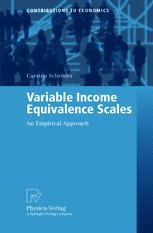

Most ebook files are in PDF format, so you can easily read them using various software such as Foxit Reader or directly on the Google Chrome browser.
Some ebook files are released by publishers in other formats such as .awz, .mobi, .epub, .fb2, etc. You may need to install specific software to read these formats on mobile/PC, such as Calibre.
Please read the tutorial at this link: https://ebookbell.com/faq
We offer FREE conversion to the popular formats you request; however, this may take some time. Therefore, right after payment, please email us, and we will try to provide the service as quickly as possible.
For some exceptional file formats or broken links (if any), please refrain from opening any disputes. Instead, email us first, and we will try to assist within a maximum of 6 hours.
EbookBell Team

0.0
0 reviewsThe book presents a new survey method for assessing equivalence scales. While previous surveys have frequently been accused of providing data which are substantially biased by respondents' personal characteristics and other subjective biases the new method keeps bias to an absolute minimum. Another key feature is that the derived data adds information as to the impact of two key variables on equivalence scales: income and the number of employed household members. In contrast to the standard ‘independence of base assumption’, the equivalence scales presented are inversely related to the income level of the reference household (a single adult), and increase in the number of employed household members.